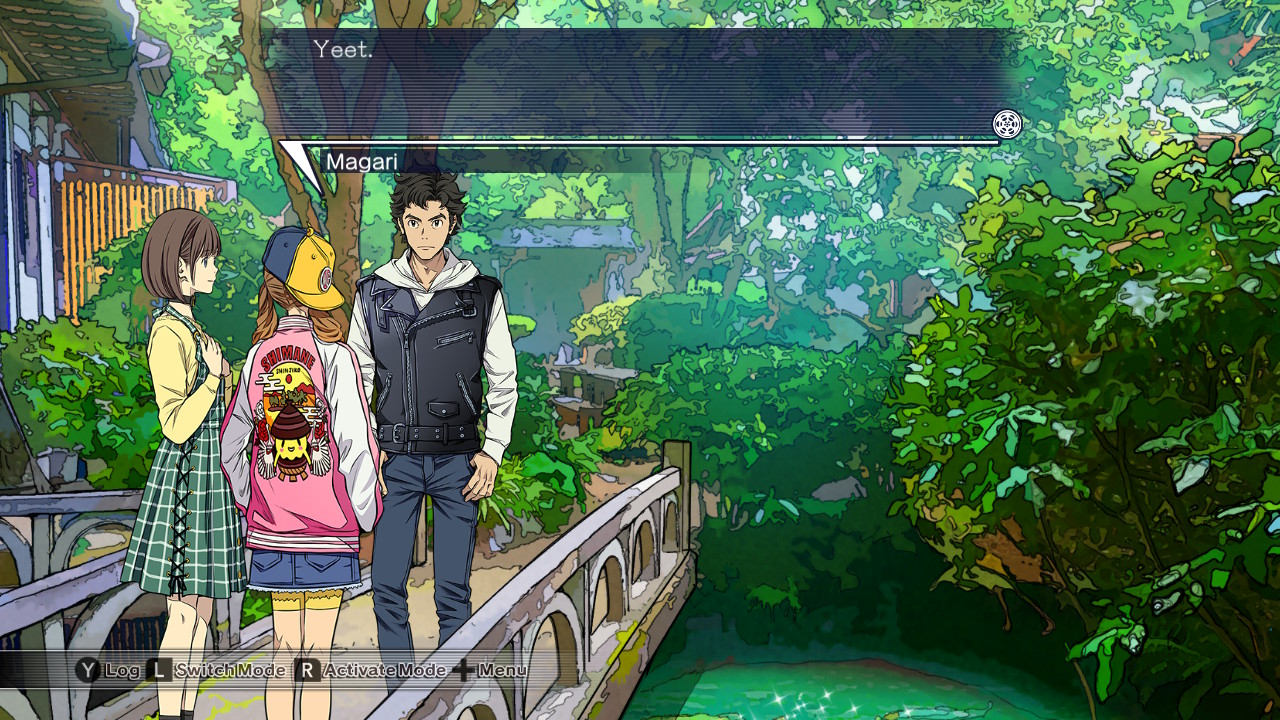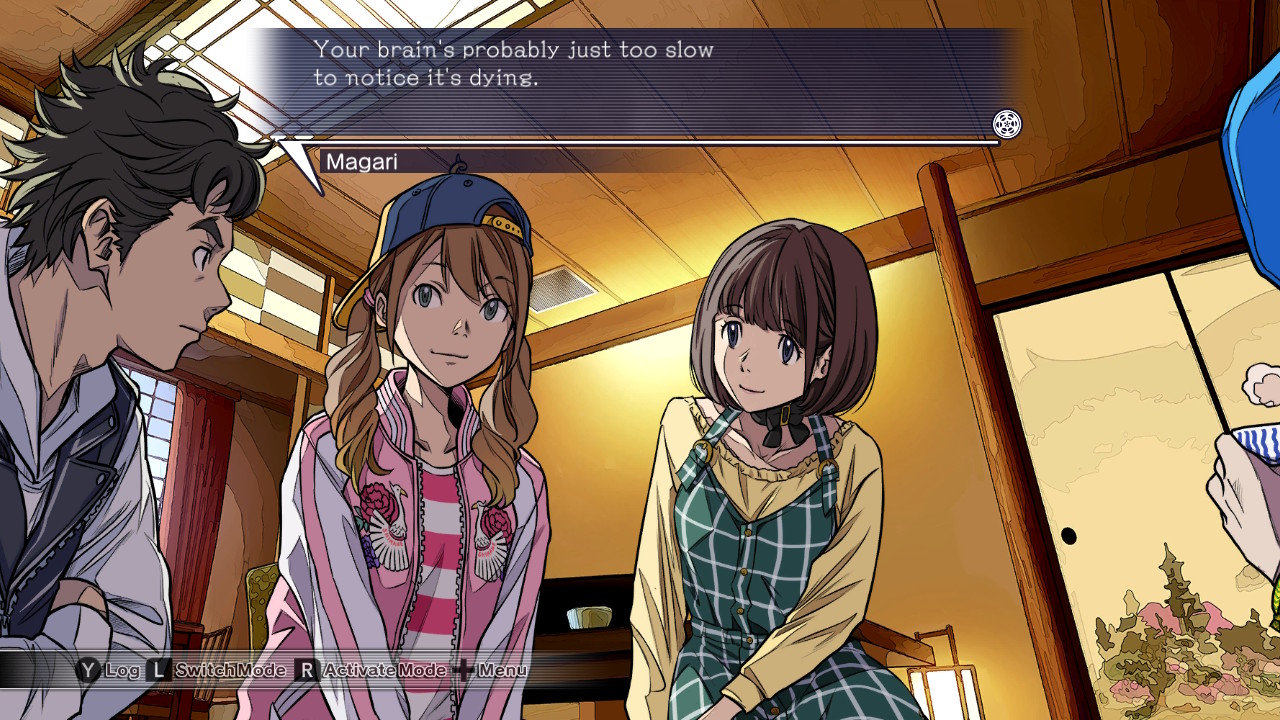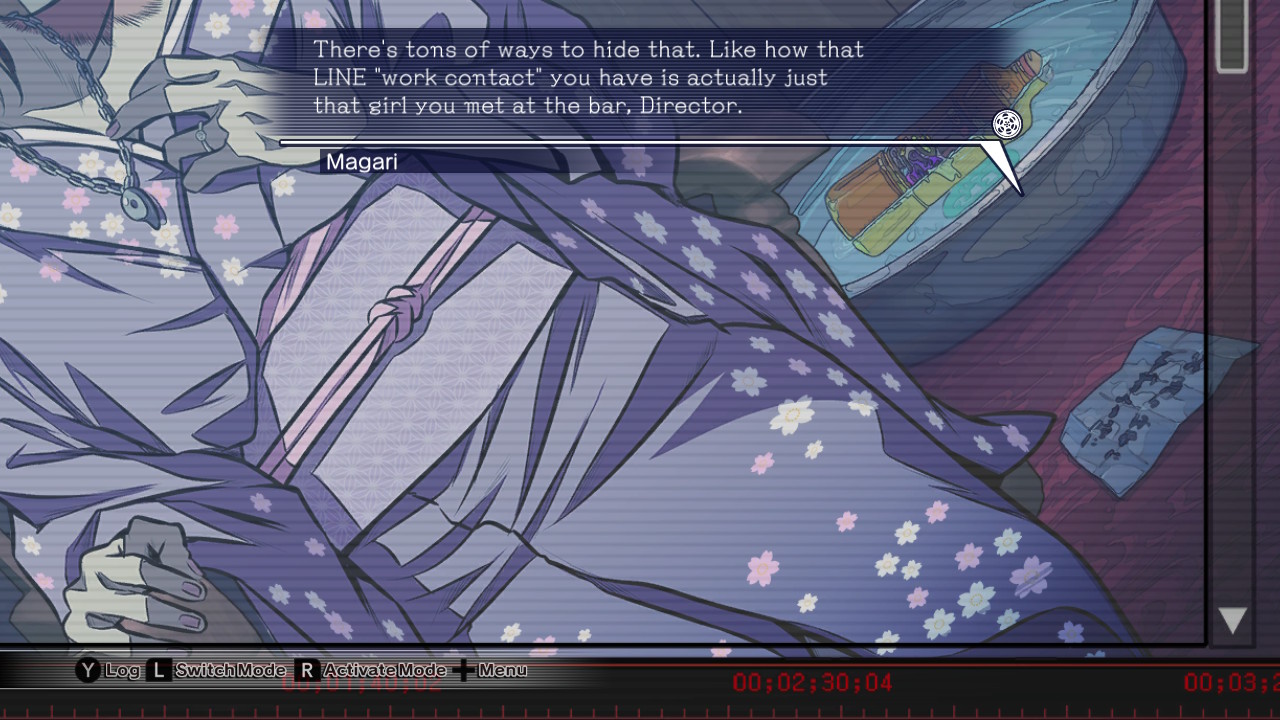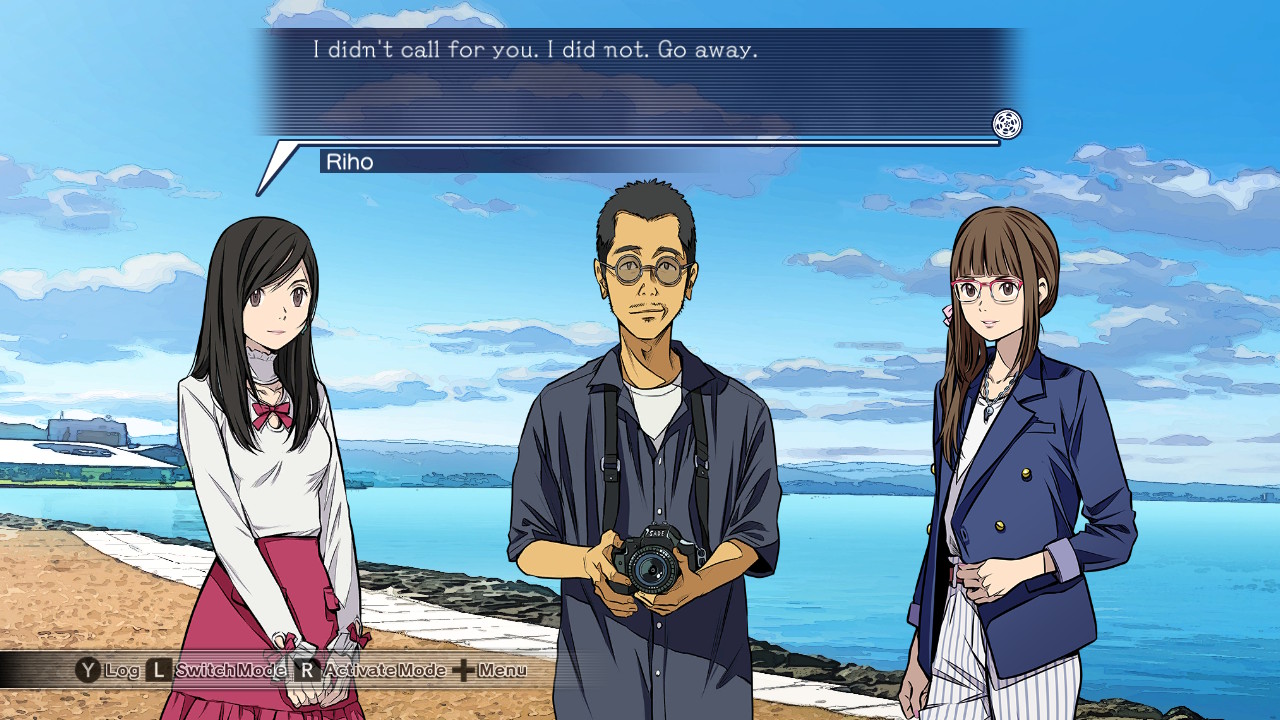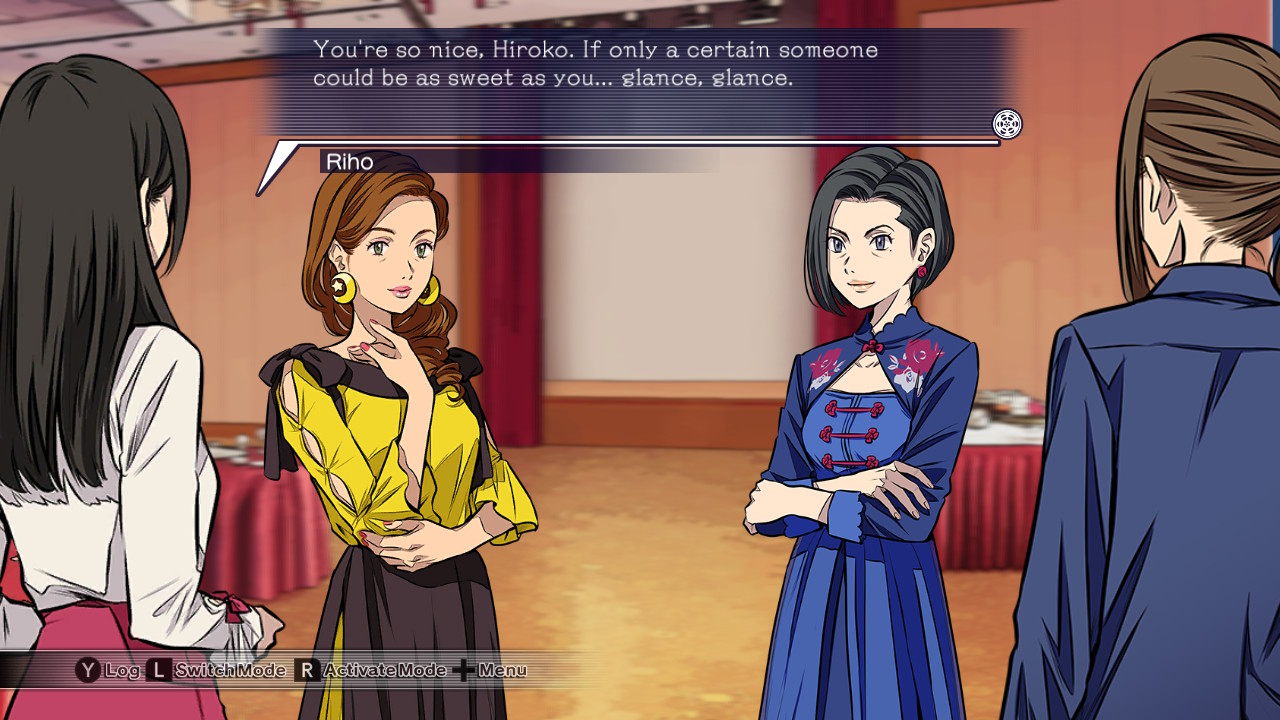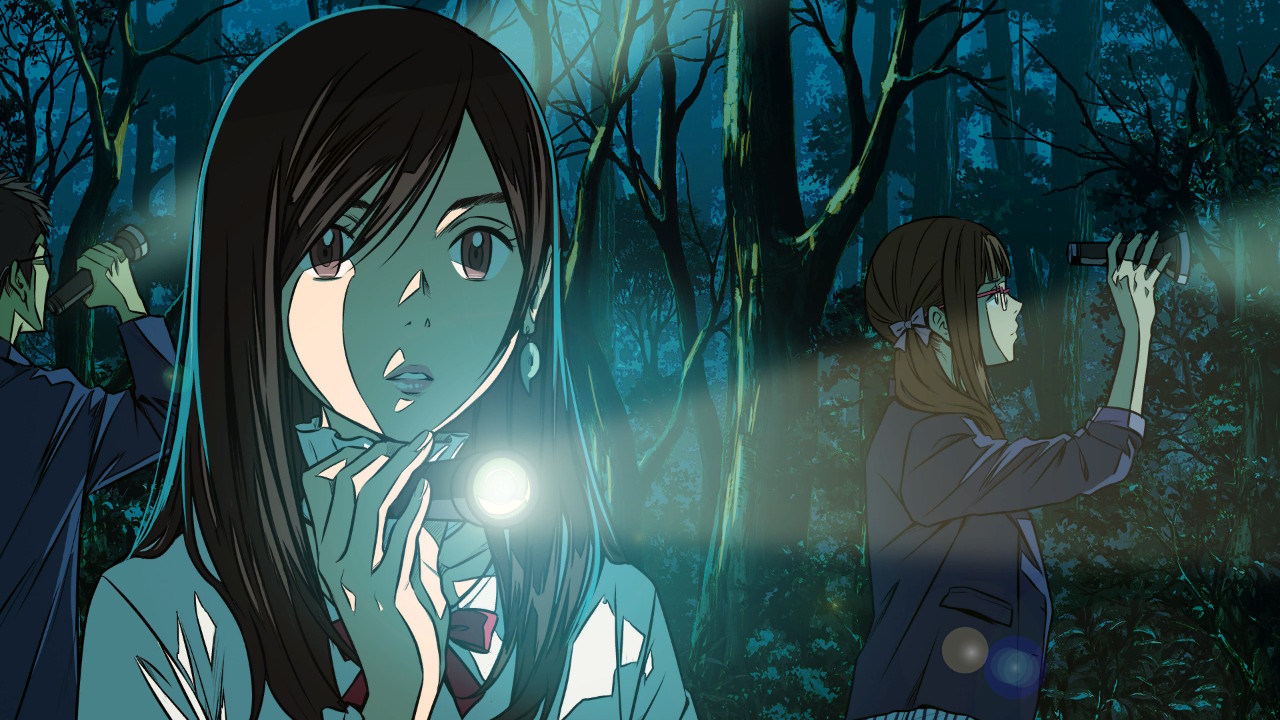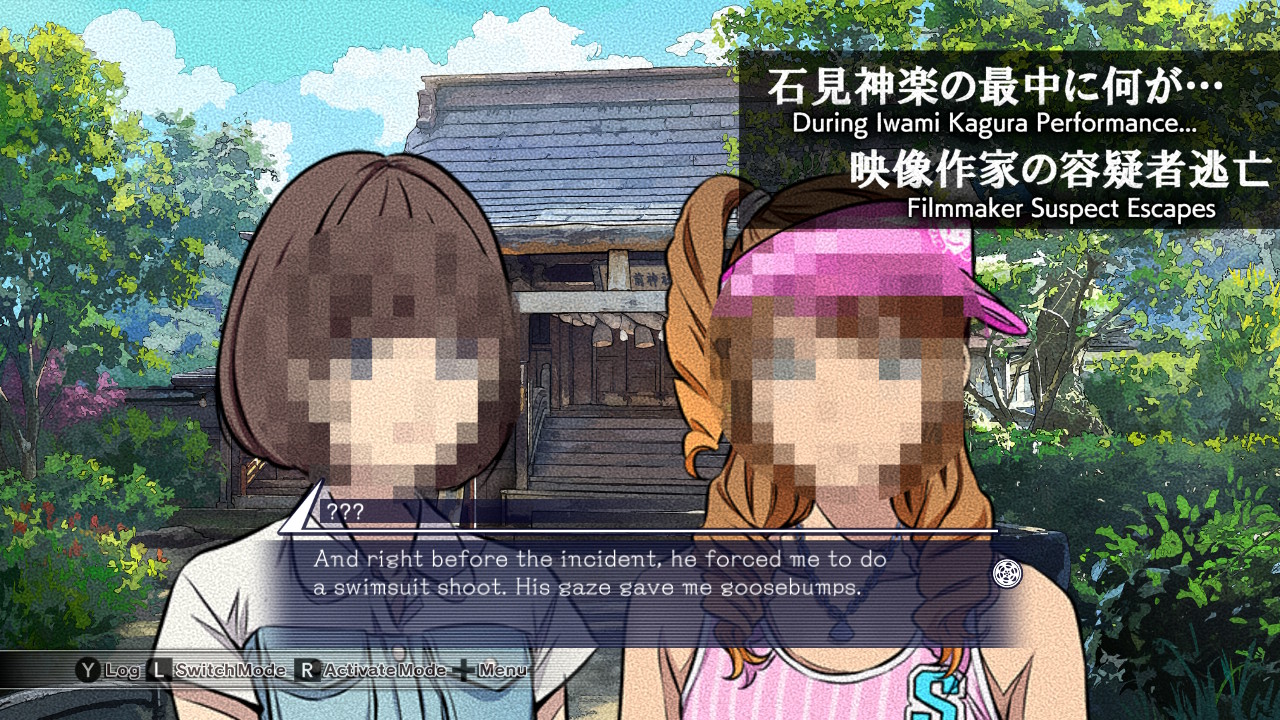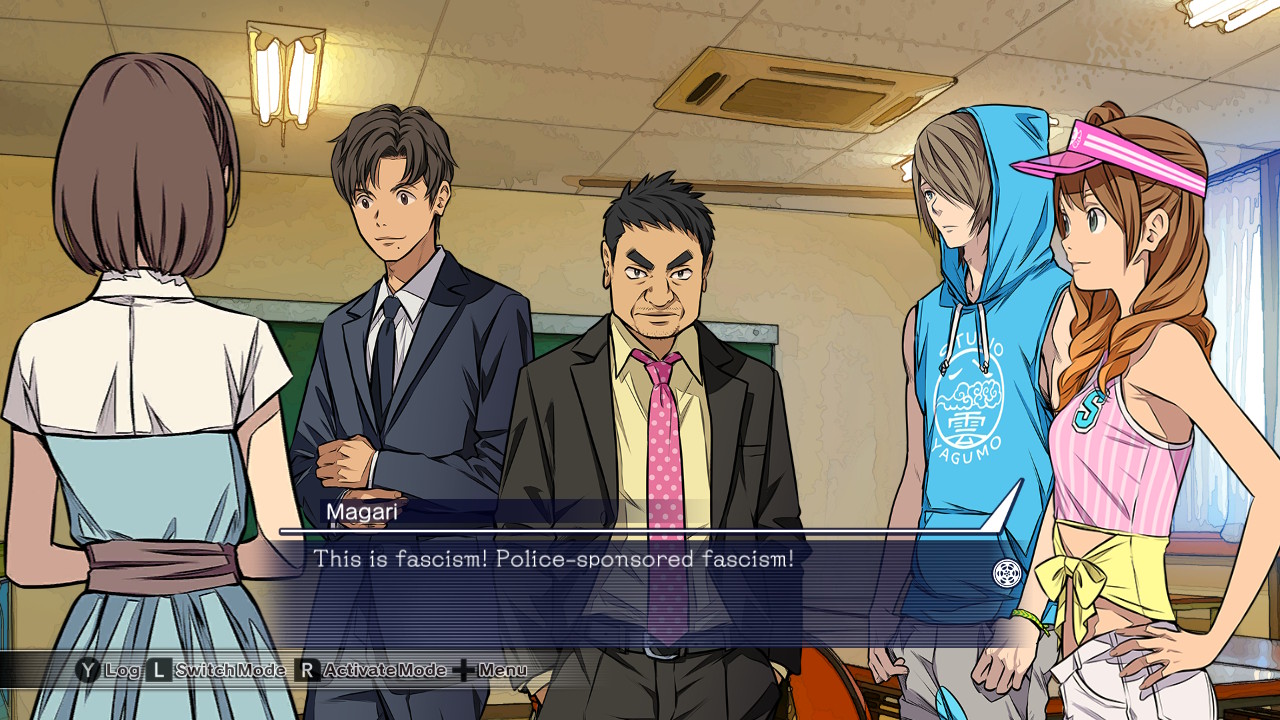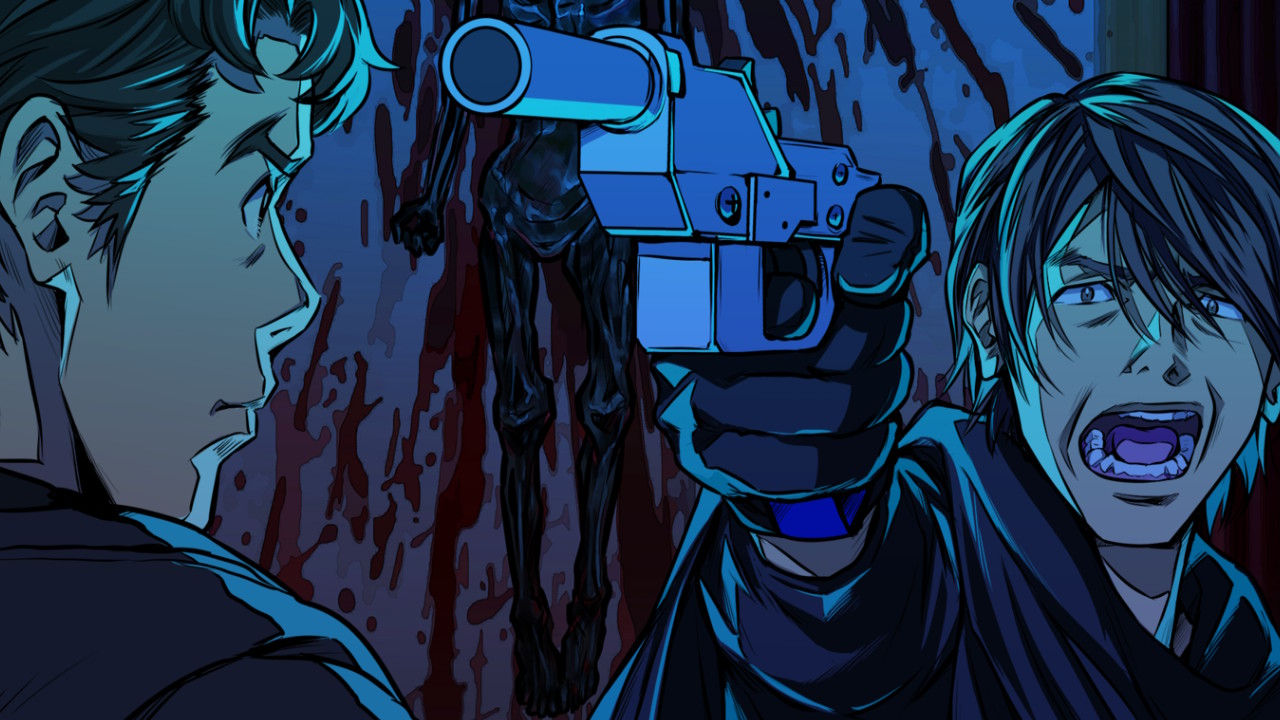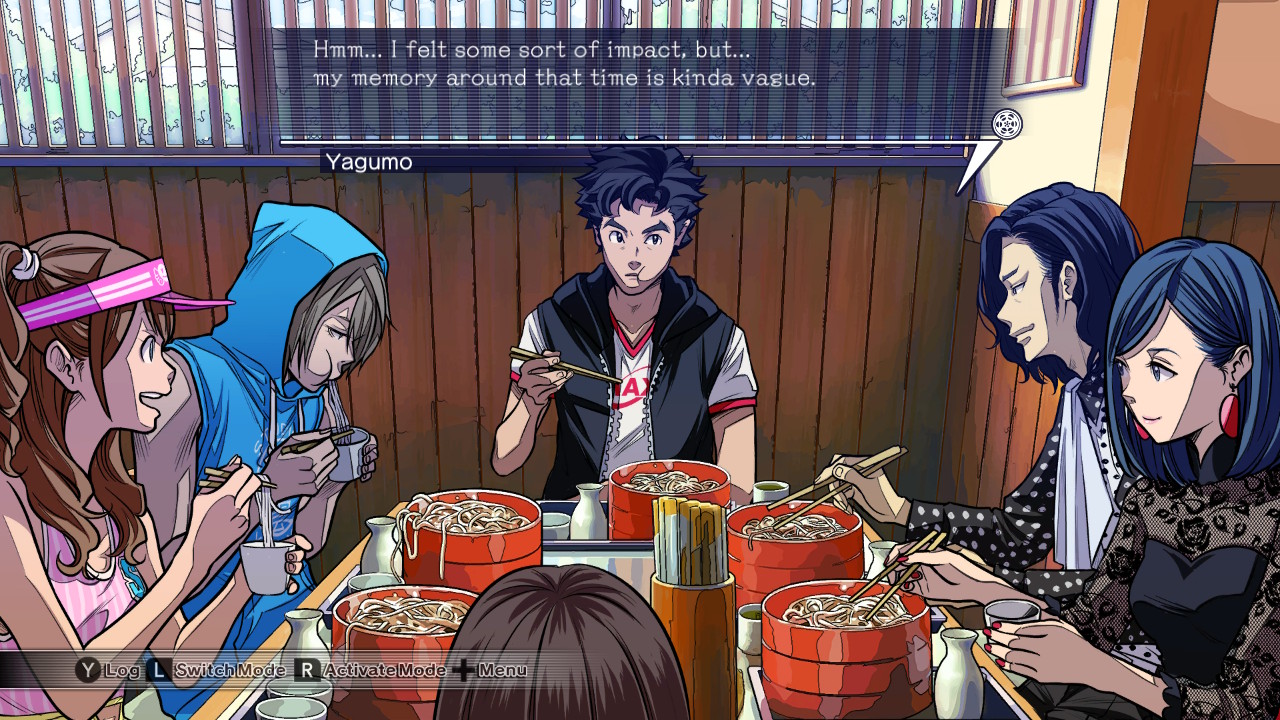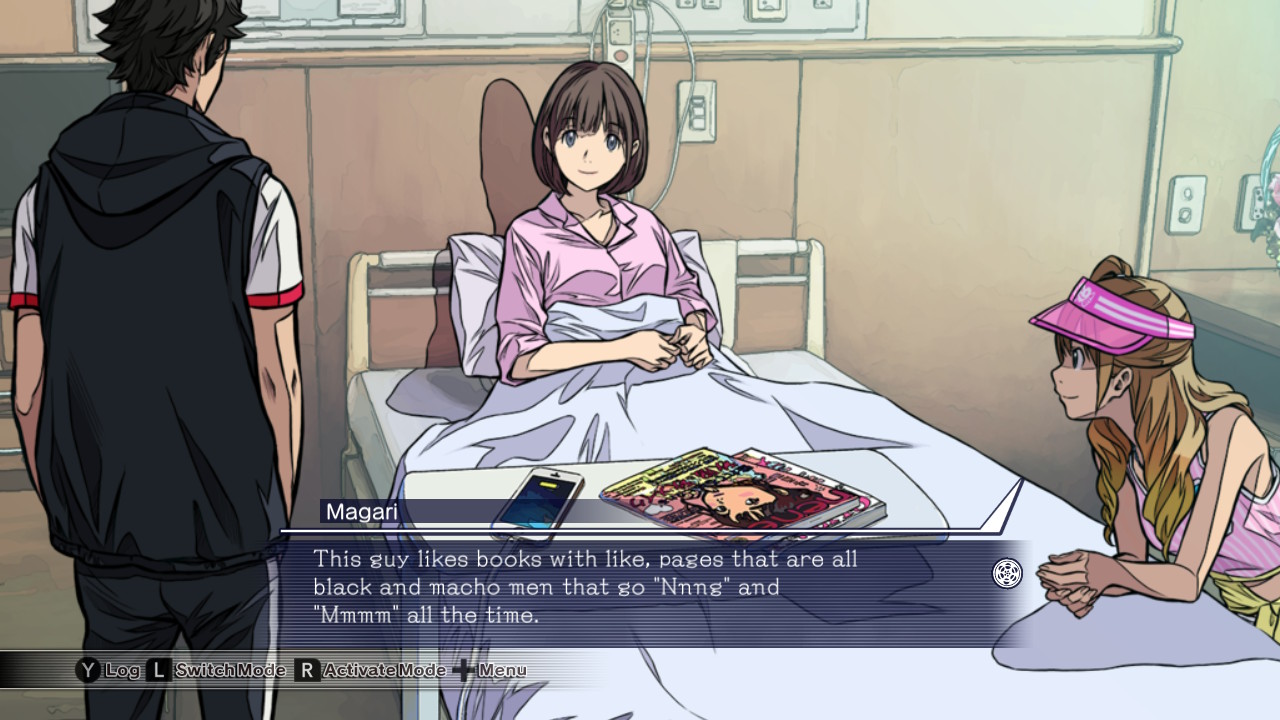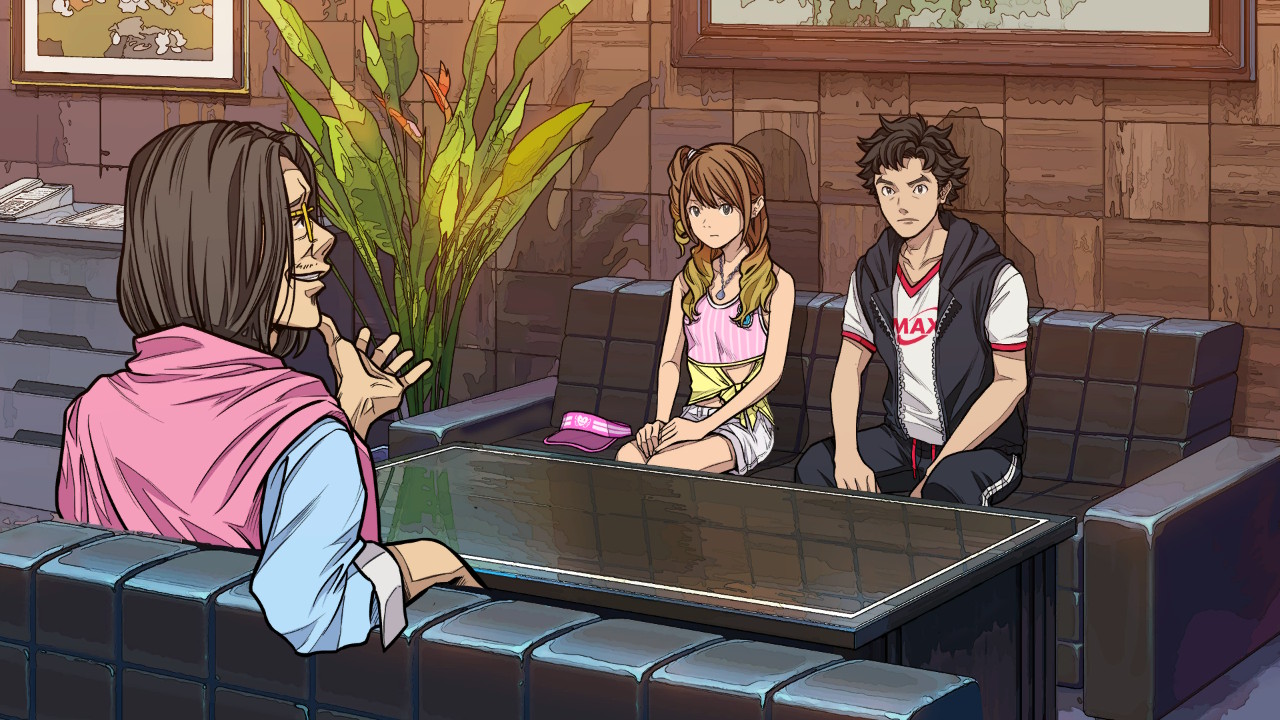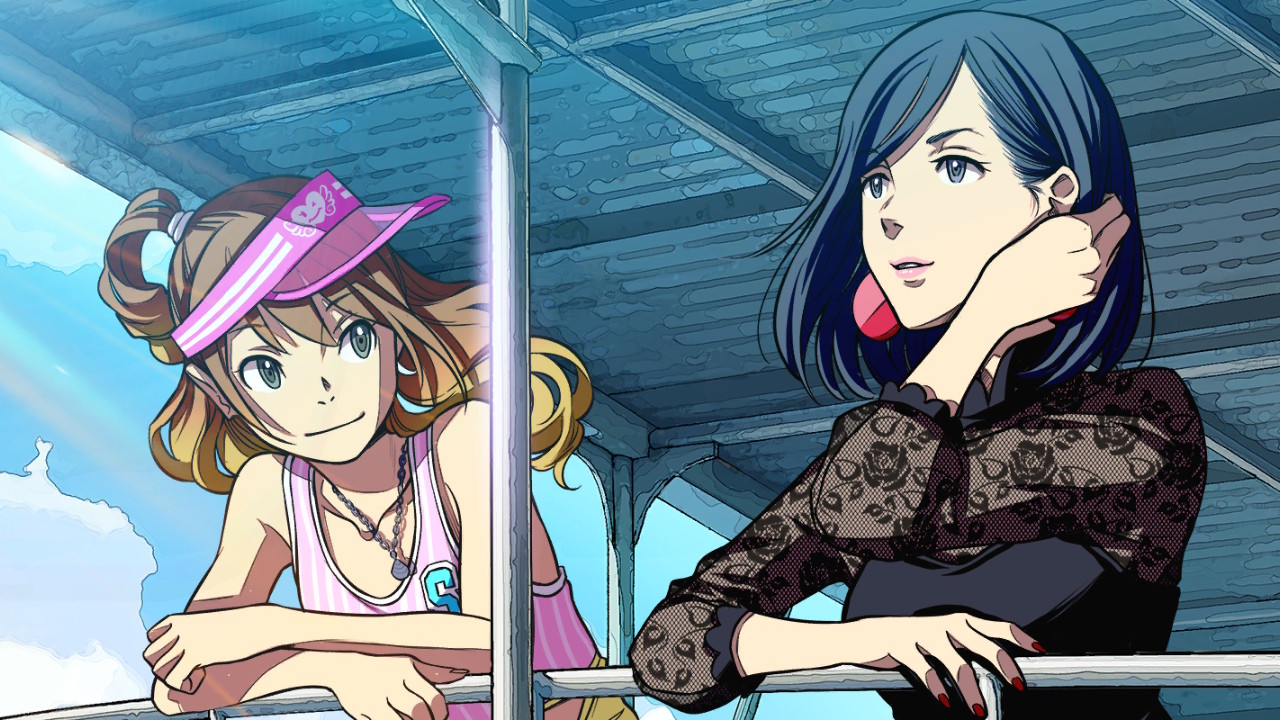Root Film
Playtime: 22 Hours
Finished 28 March 2024.Finished the game, I think - all 5 of Yagumo's chapters and both of Riho's 2 chapters. There aren't too many missables as far as I'm aware, aside from a few dialogue lines and the Nego-6 quiz guy. This game ended up being a little bit shorter than I expected, yet didn't really cover as much ground as I would have liked to see from the full story given its length. There's some random bonus content as well but it seemed kind of dumb so I didn't really bother with most of it.
This was a pretty thoroughly mediocre mystery-themed VN, which could probably even be considered outright bad if it not a few good elements somewhat redeeming it. I think my key problem with it was that so much of the premise made absolutely no sense to begin with, which kind of ruins the twists the game tries to pull. Really, the entire idea of having a real serial murder case related to a cancelled mystery drama show is kind of stupid to begin with, but the absurd rationalizations that the game makes to put the protagonist, a film directory, into the detective role are just too far-flung to make the game feel cohesive. This is even pointed out in the game by Magari - in the second chapter, she explicitly tells him to just let the detectives and police do the heavy work of the investigation, which should really be the case. (A couple of screenshots are related to her comments.) Instead, for some contrived reason Yagumo decides to not only continue investigating without any kind of permission (totally fine on its own), but decides to actively withhold information from the detectives and even goes out of his way to escape from the cops a little later in order to chase after the truth on his own like a complete moron. Note that these aren't dirty or suspicious cops in this game - Misawa is generally competent as his job, so what reason could there really be to play all of these tricks? The final twist of the game (ie. related to the true culprit, yadda yadda) pretty much hinges on this point, where the villain basically accuses Yagumo of being so fascinated with death that he decided to chase after the leads himself. While it's technically true (in the case of Yagumo anyway), it drove a huge wedge between me and the protagonist since there wasn't a single point in this game where I personally felt his stupid vigilante actions were justified.
This game is divided into episodes spanning across 2 timelines, featuring two main characters: Yagumo, a film director who's looking for his big break as one of 3 director candidates in a new mystery drama show on a big TV network, and Riho, an up-and-coming actress starring in the earlier pilot episodes that aired 10 years ago. That being said, Yagumo's story is the real plot; Riho's 2 chapters are basically side content filler with no real purpose, since they don't ask or answer any significant questions related to the murders down the line (those are all in the "hidden" third episode, as you eventually find out). Additionally, Yagumo's segments are cluttered with random advertising about landmarks in Shimano Prefecture that sound completely wooden and lifeless. They're pretty much on the level of: "Wow, did you know the entrance to Yomotsu Hirasaka, the Japanese underworld, is commonly thought to be HERE in Shimane Prefecture? It would be SO COOL to film a segment of a mystery drama here!" This kind of shit happens before, during, and after the murder investigation segments, and completely eviscerates any tension or sense of pacing that should have been built up. The game ends up feeling very "flat" from beginning to end, since each of the episodes feels like it needs to allot some space for goofy, tourist, tense, action-heavy, etc. types of things, resulting in such a homogenized and dull tone of the resulting story. Also, let's not overlook the inexplicable presence of the Shimaneko mascot and Nego-6 quiz dude, which add absolutely nothing to the story; these are almost certainly a "fellow kids" inclusion by some random bureaucrat or executive.
I mentioned this before in passing, but the entire mystery drama topic is integrated so poorly into the plot. While it technically provides some motivation for Yagumo to visit the different parts of Shimane, the actual dialogue at the destination tends to mostly focus on the mystery at hand, with very occasional comments about capturing random background B-roll or reference footage. Ultimately, the writing had to mix murder plots with boring scouting work, and there's just no way to do that gracefully without leaning entirely into one or the other - just imagine, in the real world any camera crew that gets caught up in an actual murder would probably not be prioritizing further solo investigation. Furthermore, even with all of these locations being scouted, nothing ever happens plot-wise with all of the preparation for the drama itself. You meet these directors and some of their staff, you explore the areas you're scouting as possible backdrop settings for filming... and then the game ends. The involvement of the guy who greenlit Yagumo as one of the directors pretty much goes away after the prologue, and the entire incident takes place before they're done scouting, and also before they've even starting writing anything. To go even further beyond that, it's revealed in the last 10-15 minutes of the game (or last few hours if you're more perceptive than a mole) that your main actress is dying from an unknown uncurable disease, which has already progressed to the point that she's pretty much bedridden in the final chapter. On what planet would she even be able to act in a drama, if she doesn't even have enough time to get to the point where they begin filming? It's almost inconceivable how weakly the concept was carried out - this story is about a drama that never began filming, where the protagonist is a director who doesn't direct anything, starring an actress who will not survive until the film shoot. At least the assistant did some prime assisting, I guess - more on this later.
Probably one of the biggest sins this game commits repeatedly is that it keeps withholding information from the player, who is supposed to be experiencing the story. As this is purportedly a mystery game, a key aspect of the writing should be to carefully reveal all of the clues to the player without drawing attention to it. A perceptive player would then be able to piece things together themselves, then confirm their theories against what actually happens in the game - this is pretty much the cardinal rule for any kind of media in the mystery genre. To cut a bit of slack, this is exceptionally difficult to do well; as a simple example, there's no shortage of Ace Attorney cases that fail this rule with sudden evidence or revelations being presented at critical points of a case, but I personally consider the AA series to be more of an exaggerated courtroom drama than a proper mystery game anyway (it'd be quite a bad series otherwise...). That being said, this game is incredibly egregious about it - in several cases, random timeskips are done SPECIFICALLY to hide information and action from the player for absolutely no purpose other than to bait a grand reveal. For example, in the second chapter, Yagumo finds key evidence (smashed drone parts on the roof of a shrine) late one night - but the player only finds out about this when it's presented to the culprit the day afterwards. There's another one in Riho's first case, where the key evidence relating to the water in a fishbowl is basically glossed over during investigation, before being analyzed in great detail in the final confrontation. In this case, both the art and the examine text for the fishbowl does not reveal the critical information to the player, which makes it impossible for them to solve it on their own before the reveal. It's really awful writing, and basically disqualifies whatever this piss writing is from being considered an actual mystery. If only the writers for the game actually considered how ironic this situation would be.
It's probably worth touching on the mechanics of the game a little, since the format of the game does limit the presentation of the world. As a visual novel, it's already expected that the amount of interactivity won't be very high. This game does allow a very limited sense of exploration, where you get to choose between a number of scenes at different locations, obviously with different characters and dialogue that change throughout a case. However, with static art and scenery at each location, there's not much you can do to inspect pieces of evidence, and since the scene exploration amounts to selecting boxes pointing out different parts of a scene for some dialogue, they couldn't really hide key details in the same way that Ace Attorney could (which used a cursor). From that perspective, it's quite difficult to provide satisfactory revelations during investigation phases; there's no a-ha! moment when everything you can examine is listed right in front of you. Instead, those key hints are presented as "Synesthesia phrases" during dialogue, where your character will occasionally remember important phrases related to the case (details on evidence, schedules and alibis, for example). During confrontations with the culprits of a case (or sometimes for witnesses that are trying to hide information), you basically play out an argument where you use these tidbits of information to break down their excuses and reveal the truth. While the truth is usually pretty obvious (basically just pointing out the culprit), the minigame frequently ends up going through the strangest paces when Yagumo or Riho try to prove guilt, and the vague phrases don't help too much. On more than one occasion I found it very feasible for multiple of these phrases to make sense, but only one of them was accepted for some reason. That being said, the game is EXTREMELY easy - each question only pulls from a small pool of your gathered phrases, and you have enough "lives" to go through pretty much every option in case you don't get it right. Ultimately, the game ends up being super linear with all of the mechanics being mostly for show instead of contributing any real sense of difficulty or interactivity.
The character writing in this game is incredibly inconsistent, as if they were written by several different people who never interacted with each other. I don't think the characters themselves are necessarily altogether bad (I think my complaints are more plot-related), but most of them are quite pedestrian and forgettable at best, with only a few standouts and only one of those being in a positive light. Firstly, Yagumo is an absolute knob. I've already said this pretty clearly above but his character is terrible, constantly obstructing competent detectives to be some kind of vigilante superhero for effectively no reason (you eventually learn he's related to Riho, which is no excuse). He decides to instantly pick a fight with a random bum who he suspects of being a shaman, and nearly gets himself killed multiple times just by being stupid. Equally awful is his cameraman Kanade, which is a very unfortunate situation. Throughout the early portions of the game he's a pretty funny gag character, always existing just off-screen making funny little grunting noises whenever someone (usually Yagumo) asks him something. It's a nice nod to the trope of cameramen always going unnoticed, and I found it quite entertaining personally. But then Yagumo decides to go off on a little adventure of his own in Chapter 4, after which for some inexplicable reason Kanade becomes the star of the show. You know, instead of letting the other characters breathe a little bit? There's an attempt at a lame bit where all of the women in the game start talking about how handsome he is whenever he's on screen, which feels completely out of place during a murder investigation. It turns out he talks like a femboy and dresses like an emo NEET fashion disaster, and doesn't actually contribute much himself other than making Magari & Hitoha dumber by proxy, since the writers needed to feed him some good lines to make it seem like he's contributing. I really don't get the point of all this; I don't think anyone would be particularly attached to the idea of there always being a "handsome" dude fronting the studio's group, and the other two characters have more than enough personality to cover for Yagumo's temporary displacement. Somehow, the writers turned an entertaining gag character into a detriment of the story. Either way, I'd say most of the other characters are mostly pretty inoffensive. Riho has a couple of entertaining moments and I like all of the detective characters, Hitoha is fine but doesn't really steal the show, and the rest of them play their respective parts about as well as you could expect given the disastrous writing of this game, with one exception.
I think Magari is a great character, and easily the highlight of the game - and the only thing really saving this from being a complete dumpster fire. To start with, she's the only character who has any self-awareness about the situations they find themselves in, suggesting that they leave matters to the cops to stay out of trouble once they get caught up in the first murder case. Even after Yagumo decides to continue investigating regardless, she plays an important role in the team with her observational skills, generally demonstrating a mind for carefulness and prudence that nobody else seems to have. Also, in my opinion, she's pretty much the only character who is genuinely funny most of the time, with lots of snide comments about the dicey situations they find themselves in or the sketcy people they meet. Quippy characters aren't always my kind of thing, but it works perfectly in this game to prevent the entire game from being an exhausting trek through self-serious dross. To give her writing and voice acting some more credit, I think I'd still consider her a good or great character if she appeared in another game, but she shines particularly brightly in this one. I'm noticing that she's in 18 of the 24 screenshots in the gallery, only missing from 2 of them on the Yagumo route - which puts into perspective how hard she carries the tone of the game.
The art is the other thing that this game does quite well. Character art is somewhat limited in terms of expression and pose variations so scenes and actions frequently feel a little bit stunted (for example, pretty much everyone always has a mild smile no matter what happens), but the artwork itself is fine. CGs are very nice as a whole; I wouldn't really guess how terrible the rest of the game is based on the art itself. Even the scene BGs have a pretty cool quantized style to them, and the entire game is very vibrant with its use of colors and shading. I only wish there was more to compliment about it, because the few elements of the game that are good are simply overshadowed by the miserable swamp of crap you have to wade through to finish it. For myself, I can't say I hated playing through it, but it really wouldn't be worth playing this again and I don't think I'd have played it at all if I didn't buy it on a whim some time ago.


